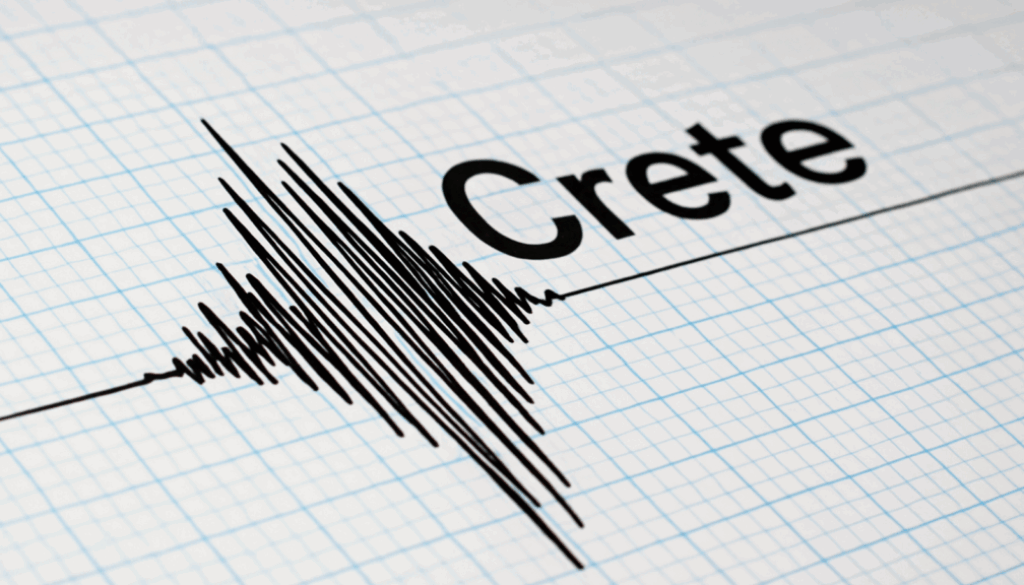Greece Earthquakes: 7 Urgent Facts Shocking Tourists and Locals
Greece earthquakes are once again making headlines, shaking not only the ground but also the confidence of travelers and citizens across the country. Known for its stunning islands and historical marvels, Greece is no stranger to seismic activity. But recent events have rattled not just the ground beneath people’s feet—but their sense of security, too. With reports of tremors in Crete and other parts of Greece, tourists and locals alike are turning to the news for clarity.
In this article, we’ll break down 7 urgent facts surrounding the Greece earthquake trend, from causes and recent magnitude reports to expert predictions, local reactions, and safety tips.
1. A 5.2 Magnitude Earthquake Struck Crete on May 13, 2025
On May 13, Crete, Greece’s largest island, was hit by a 5.2 magnitude earthquake, sending shockwaves through nearby towns. The tremor was felt in Heraklion, Chania, and as far as Rhodes.
- No deaths have been reported so far.
- Mild building damage was observed in rural areas.
- Aftershocks continue to be monitored.
The Greek Institute of Geodynamics confirmed the epicenter was 15 km south of Heraklion, at a depth of 10 km.
2. Greece Lies on a Major Seismic Fault Line
The country is located between the African and Eurasian tectonic plates, making it one of the most earthquake-prone regions in Europe.
- Average of 5,000 earthquakes occur annually in Greece.
- Most are too weak to be felt.
- The most powerful quake in recent history was 6.7 magnitude in 1999.
These geological facts explain why Greece earthquakes continue to trend during even moderate seismic events.
3. Tourists Are Reporting Panic and Hotel Evacuations
Social media posts from visitors in Crete and Santorini describe rushed evacuations and sleepless nights.
“Woke up to the whole hotel shaking in Crete. No warning, no info.” – Tourist from Manchester
Hotels and resorts along the coastline have started conducting earthquake preparedness drills. Local authorities recommend:
- Staying calm and moving away from glass windows.
- Following staff instructions.
- Having a basic safety kit prepared.
4. Earthquake Frequency in 2025 Is Higher Than Average
According to the European-Mediterranean Seismological Centre (EMSC), Greece has recorded over 320 tremors in 2025 alone, with at least 12 above magnitude 4.5.
- Increased frequency doesn’t always indicate a larger quake.
- Experts are monitoring tectonic stress buildup.
- No megaquake is currently predicted, but caution is advised.
This data fuels the trending concern surrounding Greece earthquakes this spring.
5. Emergency Services Are on High Alert
The Hellenic Fire Brigade and Greek Civil Protection Agency have ramped up activity in affected areas.
- Drones are surveying damaged zones.
- Local hospitals have activated emergency protocols.
- Temporary shelters are being prepared.
These proactive measures reflect the growing concern for residents and tourists alike.
6. Flights and Ferry Services Continue with Precautions
Despite tremors, Greece’s airports and ferry terminals remain operational. However, travelers may experience minor delays or safety announcements.
- Airlines are reviewing emergency landing protocols.
- Ferry operators now include earthquake safety info in briefings.
- Passengers are encouraged to download the Earthquake Alert App.
7. Locals Show Resilience, But Worry Is Growing
While seasoned Greek residents are no strangers to earthquakes, recent events have stirred anxiety, particularly in communities already affected by the 2021 and 2022 tremors.
“We’re used to quakes, but not this often, and not this strong.” – Local from Crete
The government has launched a public awareness campaign, including:
- School safety programs
- Community workshops on disaster preparedness
- Multilingual communication to assist tourists
Understanding Earthquakes in Greece: Key Terms
- Epicenter: The point on the Earth’s surface directly above the earthquake origin.
- Magnitude: A number that indicates the strength of the quake.
- Aftershock: A smaller quake following the main seismic event.
- Seismic Gap: An area along a fault that may be due for an earthquake.
Q: Is it safe to travel to Greece right now?
A: Yes, but it’s advisable to stay updated with local alerts and follow safety protocols.
Q: Has there been a major earthquake recently?
A: Yes, a 5.2 magnitude quake hit Crete on May 13, 2025.
Q: What are the most earthquake-prone areas in Greece?
A: Crete, the Dodecanese islands, and the Corinth Rift Zone.
Q: What should I do during an earthquake?
A: Drop, cover, and hold on. Stay away from glass and heavy furniture.
Q: Do earthquakes in Greece trigger tsunamis?
A: Rarely. Only undersea quakes above 6.5 magnitude typically pose tsunami risks.
Call-to-Action (CTA):
📢 Are you currently in Greece or planning to visit? Share your experience or questions in the comments below. Don’t forget to subscribe for real-time safety updates and travel alerts related to Greece earthquakes and more.



